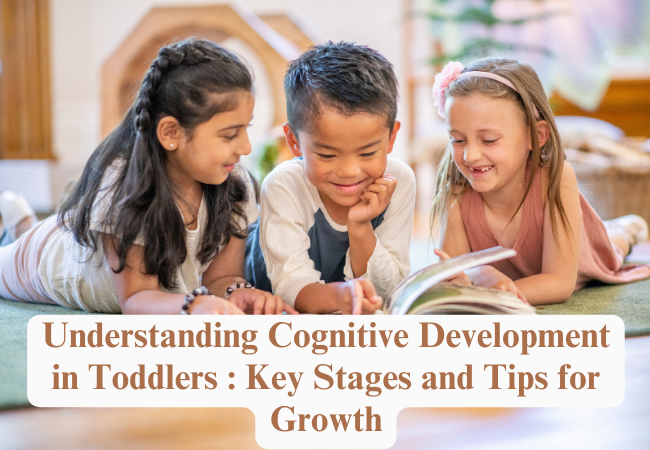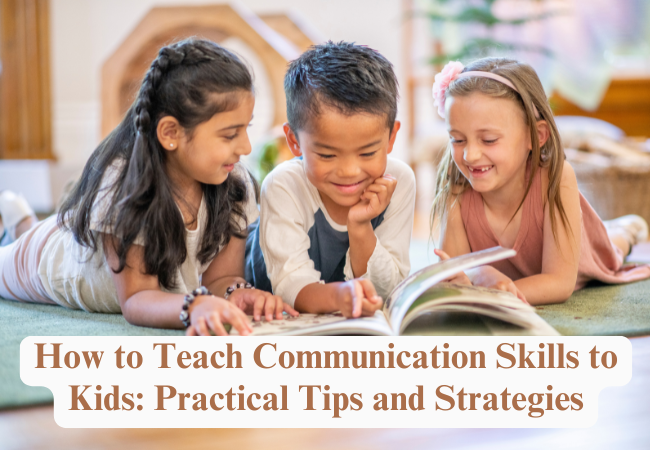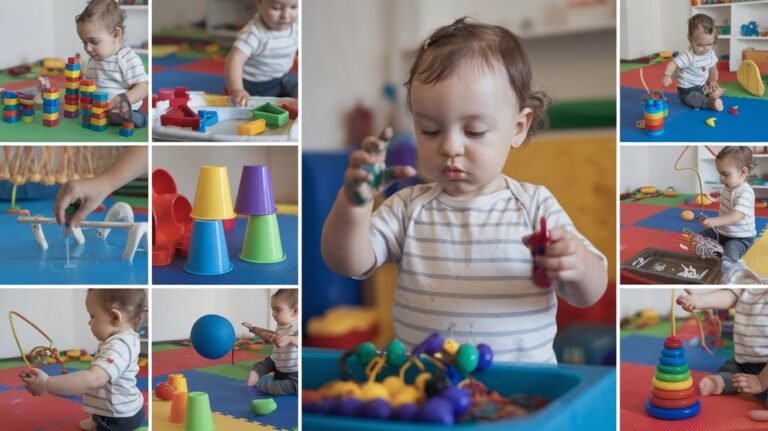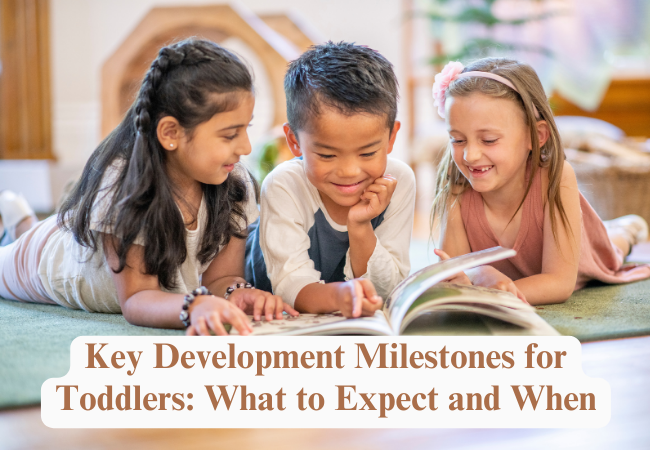Learning Activities for Preschoolers : Fun,Educational Ideas
Explore fun and educational learning activities for preschoolers. Discover engaging ideas to boost your child’s cognitive, social, and motor skills through play.
Preschoolers learn best through play. By offering fun, educational activities, you can help your child develop important skills while having a great time. This guide will share exciting ideas to engage your preschooler and support their growth.
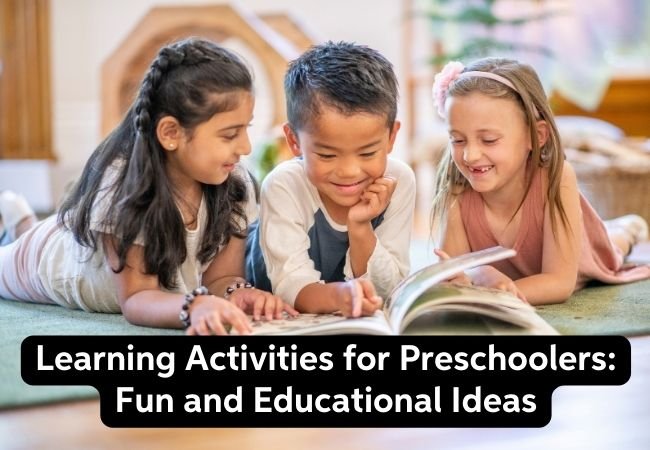
Why Learning Activities Matter for Preschoolers
Learning activities are crucial for preschoolers because they:
- Develop essential skills
- Encourage curiosity and creativity
- Build confidence
- Prepare children for school
Let’s explore some fun activities that support different areas of development.
Literacy Activities
Literacy skills are the foundation for reading and writing. Here are some engaging activities to boost these skills:
1. Alphabet Scavenger Hunt
- Hide letter cards around the room
- Ask your child to find and name each letter
- For an extra challenge, have them find objects starting with that letter
2. Story Stones
- Collect smooth, flat stones
- Draw or paint simple pictures on each stone
- Use the stones to create and tell stories
Research shows that storytelling helps develop language skills. This activity makes it fun and interactive.
3. Rhyming Games
- Say a simple word like “cat”
- Take turns thinking of words that rhyme
- Make it silly with made-up words too
Math Activities
Early math skills help children understand numbers, patterns, and shapes. Try these activities:
1. Counting with Snacks
- Use small snacks like raisins or cereal
- Practice counting, adding, and subtracting
- Let your child eat the snacks as a reward
2. Shape Sorting
- Cut out different shapes from colored paper
- Have your child sort them by shape or color
- Create pictures using the shapes
3. Measuring Fun
- Use everyday objects to measure things around the house
- Try using hands, feet, or toys as units of measurement
- Compare sizes: “How many teddy bears long is the couch?”
Early exposure to math concepts supports later academic success.
Science Activities
Preschoolers are naturally curious about the world. Nurture this curiosity with simple science experiments:
1. Color Mixing
- Provide primary colors of paint or food coloring
- Let your child mix colors to create new ones
- Discuss what happens when colors combine
2. Sink or Float
- Collect various household objects
- Fill a tub with water
- Have your child guess which items will sink or float, then test it out
3. Plant a Seed
- Plant seeds in small pots or cups
- Water and care for the plants together
- Observe and discuss the growth process
These activities help develop scientific thinking skills.
Art and Creativity Activities
Art activities foster creativity and improve fine motor skills:
1. Playdough Creations
- Make homemade playdough together
- Provide tools like cookie cutters and plastic knives
- Encourage your child to create animals, letters, or imaginary creatures
2. Finger Painting
- Cover a table with paper
- Provide finger paints in various colors
- Let your child explore and create freely
3. Collage Making
- Collect materials like magazine cutouts, fabric scraps, and buttons
- Provide glue and paper
- Let your child create a picture or design
Art activities support cognitive, social, and emotional development.
Physical Activities
Preschoolers need plenty of physical activity to develop gross motor skills:
1. Obstacle Course
- Create a simple obstacle course using household items
- Include activities like crawling, jumping, and balancing
- Time your child and encourage them to beat their record
2. Dance Party
- Put on some fun music
- Dance together, mimicking each other’s moves
- Try freeze dance: pause the music randomly and freeze in place
3. Animal Movements
- Call out different animals
- Have your child move like that animal
- Examples: Hop like a bunny, slither like a snake, gallop like a horse
Physical play is crucial for overall development.
Social and Emotional Activities
Help your child develop social skills and emotional intelligence:
1. Feeling Faces
- Draw or print out faces showing different emotions
- Discuss what might cause each feeling
- Play charades, acting out different emotions
2. Puppet Play
- Make simple puppets from socks or paper bags
- Use the puppets to act out social situations
- Encourage your child to solve problems through the puppets
3. Cooperative Games
- Play games that require teamwork
- Examples: building a block tower together, parachute games with a bed sheet
- Emphasize the importance of working together
These activities help children develop empathy and social skills.
Tips for Successful Learning Activities
- Follow your child’s interests
- Keep activities short (10-15 minutes)
- Offer praise for effort, not just results
- Make learning part of daily routines
- Have fun together!
Creating a Learning-Friendly Environment
Set up your home to encourage learning:
- Organize a dedicated play area
- Rotate toys and materials to maintain interest
- Display your child’s artwork
- Keep books easily accessible
- Limit screen time
When to Seek Professional Advice
While every child develops at their own pace, consult your pediatrician if you notice:
- Difficulty following simple instructions
- Lack of interest in playing with others
- Trouble with basic physical tasks
- Regression in skills already learned
Early intervention can make a big difference if there are any developmental concerns.
Conclusion
Learning activities for preschoolers don’t have to be complicated or expensive. With a little creativity and everyday materials, you can create engaging experiences that support your child’s development.
Remember, the goal is to make learning fun. When children enjoy what they’re doing, they’re more likely to stay engaged and retain information. By incorporating these activities into your daily routine, you’re helping your preschooler build a strong foundation for future learning.
Every child is unique, so don’t worry if your child prefers some activities over others. The key is to provide a variety of experiences and follow your child’s lead. With your support and these fun activities, your preschooler will be well-prepared for the exciting journey of learning that lies ahead!
For more parenting tips and guides, visit usaparentingtips.com

